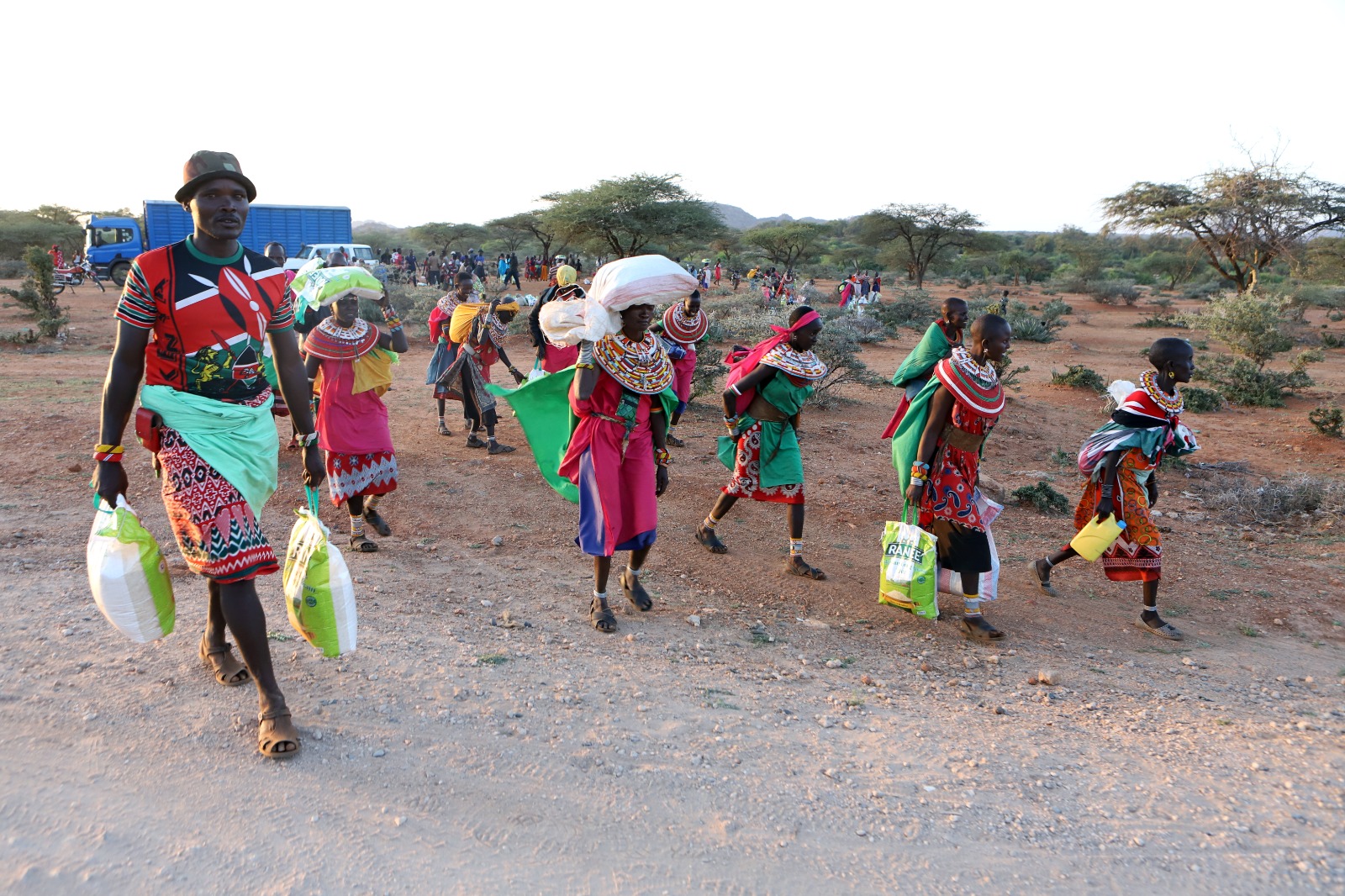
Kenya is one of 22 countries facing increased levels of acute food insecurity in the coming months, this is according to the latest report from the United Nations’ Food and Agriculture Organization (FAO) and World Food Programme (WFP).
The "Hunger Hotspots" report, issued this week, warns that conflict, climate change, and economic instability are combining to create catastrophic hunger crises worldwide – and Kenya is no exception.
The report anticipates worsening food insecurity across the country, fueled by unpredictable weather patterns and ongoing global economic pressures.
The La Niña phenomenon, expected to impact global climates through March 2025, could further disrupt Kenya's fragile food systems, leading to drier-than-normal conditions in certain regions.
This is likely to harm crop yields and reduce food availability for vulnerable communities, especially those already experiencing critical levels of food insecurity.
The situation is further complicated by the ripple effects of conflicts worldwide, particularly in the Middle East.
FAO Director-General QU Dongyu emphasized that without urgent humanitarian support, countries like Kenya face significant challenges in sustaining their agricultural output
“Access to nutritious food is not just a basic need – it is a fundamental human right,” Dongyu stated.
“Peace is a pre-requisite for food security. Without peace and stability, farmers cannot grow food, harvest, or sustain their livelihoods.”
According to the hunger hot spots, nearly 4 million people are already facing food insecurity, humanitarian organizations are sounding the alarm.
Cindy McCain, WFP Executive Director, highlighted the urgency of the global hunger crisis.
“It’s time for world leaders to step up and work with us to reach the millions of people at risk of starvation – delivering diplomatic solutions to conflicts, using their influence to enable humanitarians to work safely, and mobilizing the resources and partnerships needed to halt global hunger in its tracks,” he said.
Kenya joins countries such as Niger, Chad, and Lebanon on the updated list of hunger hotspots, a designation that signals an immediate need for international attention and resources.
According to the WFP and FAO conflict, climate shocks, and economic pressures are expected to continue driving food insecurity throughout the outlook period from November 2024 to May 2025.
Local communities in arid and semi-arid regions, such as Turkana and Marsabit, according to the report remain highly vulnerable.
A prolonged dry season could escalate food shortages, compounding challenges that these regions face year-round.
Extreme weather events particularly floods and droughts have already disrupted agriculture and left countless families without access to nutritious food.
The UN report has further called upon world leaders to prioritize not only immediate food assistance but also conflict resolution and climate adaptation to prevent further escalation.
The report argues that Kenya’s situation underscores the interconnectedness of global conflicts and climate issues, which can quickly trigger severe impacts across continents.
“We urgently need a humanitarian ceasefire, and to restore access to and availability of highly nutritious food, including reactivating local food production,” Dongyu emphasized.
With the global hunger crisis showing no signs of slowing down, Kenya’s future hinges on prompt and decisive action. The FAO and WFP stress that early intervention and sustained support are essential to stabilize the situation and safeguard the livelihoods of millions of Kenyans.
The organizations are urging the global community to increase funding and resources to address hunger, prevent starvation, and invest in long-term food security measures for at-risk populations across Kenya and beyond.
As Kenya faces this intensifying crisis, the words of McCain resonate: “With more effective political and financial support, humanitarians can and will continue to implement proven and scalable solutions to address hunger and reduce needs over the long term.”










